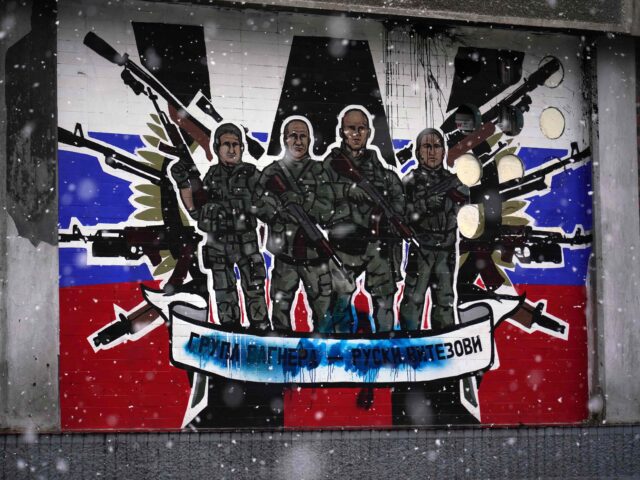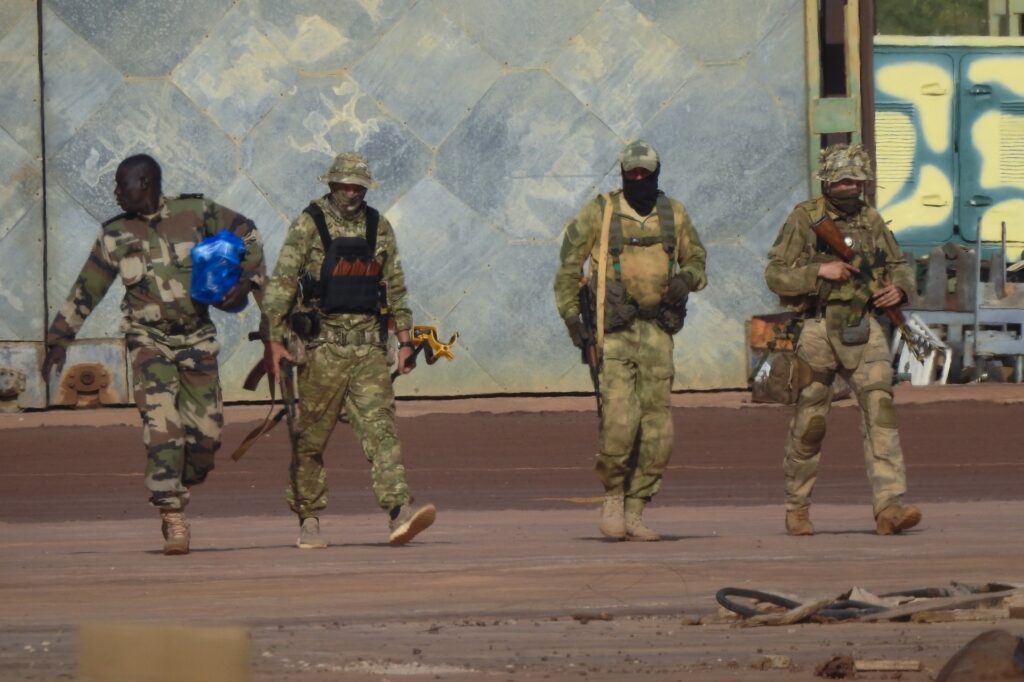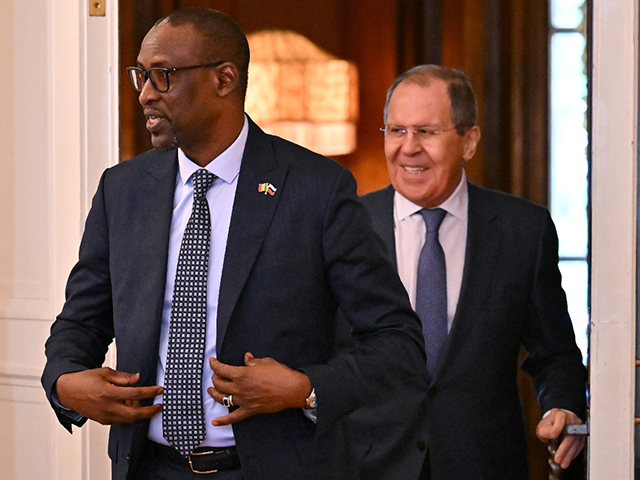The United Nations Development Program (UNDP) reported this week that sub-Saharan Africa has become “the new global epicenter of violent extremism,” accounting for half of the world’s terrorism-related deaths last year.
On Monday, Russian Foreign Minister Sergei Lavrov visited Mali, one of the four African nations with the highest number of terrorism deaths, in a bid to extend Moscow’s influence over Africa by helping the ruling junta fight jihadi rebels.
Voice of America News (VOA) quoted UNDP administrator Achim Steiner describing the terrorism report as an effort to understand why “violent extremist groups are able to both succeed in penetrating nation states, communities, and essentially spread their networks of influence.”
Sub-Saharan Africa Is 'New Epicenter' of Extremism, Says UN https://t.co/DsdvUgX0mI
— Jackson M'vunganyi (@UpfrontAfrica) February 7, 2023
“Is it religion that is attracting people and radicalizing them, or is it a push factor that has a great deal to do with the economic reality?” Steiner asked.
According to the report, which included over a thousand interviews with former members of extremist groups, economic factors and human rights abuses are stronger motivating forces than “religious ideologies.” The U.N. said religious ideology declined to 17 percent as the “primary reason motivating” recruits from 40 percent during the first comparable study in 2017.
This may have been partly due to greater involvement in extremist groups by women, who U.N. researchers noted are “less likely to join for ideological reasons.” Instead, women tend to follow their husbands and family members into extremism, and men “tend to join with friends.”
Steiner posited that rising extremism in sub-Saharan Africa could be a response to violent actions taken by oppressive governments. He noted that almost half of the former extremists responding to the new study “cited a specific trigger event that pushed them to join violent extremist groups,” and the trigger event was usually a specific “human rights abuse” by state security forces.

This picture shows a defaced mural to the glory of Russia’s mercenary group Wagner reading “Wagner Group – Russian knights” on the side wall of an apartment bock in Belgrade on January 20, 2023. (Photo by OLIVER BUNIC / AFP) (Photo by OLIVER BUNIC/AFP via Getty Images)
Steiner also said international groups are actively spreading extremist ideologies as part of their global political agenda. He mentioned not just the usual suspects like the Islamic State and al-Qaeda, but also Russia’s notoriously brutal Wagner Group mercenaries.
The Wagner Group is active in Mali, where the elected government was overthrown by a coup in August 2020. Independent human rights experts working for the U.N. last week called for a full investigation of abuses allegedly perpetrated by the junta and its Wagner mercenaries.

This undated photograph handed out by French military shows three Russian mercenaries, right, in northern Mali. Russia’s Wagner Group, a private military company led by Yevgeny Prigozhin, a rogue millionaire with longtime links to Russia’s President Vladimir Putin, has played a key role in the fighting in Ukraine and also deployed its personnel to Syria, Central African Republic, Libya and Mali. (French Army via AP)
Resistance to the junta includes a number of Islamist extremist groups, including branches of ISIS and al-Qaeda, fitting the paradigm described by the U.N. report on rising extremism in Africa.
The junta initially continued counterterrorism operations in partnership with France, but relations quickly deteriorated, in part because France and the European Union objected to the junta bringing in Wagner mercenaries. In February 2022, the junta told France to withdraw all of its forces. The last French troops departed Mali in August 2022.
Humanitarian groups say terrorism in Mali grew exponentially worse after the French pullout, including the dramatic rise of the Islamic State branch in the Sahel, a splinter faction noted for brutally murdering everyone it accuses of “apostasy” or betrayal. Entire communities have been wiped out by ISIS-Sahel’s literal scorched-earth attacks.
“It is a group that is particularly violent, and often the cause of tragedies that go beyond comprehension,” executive director Baba Dakono of Mali’s Citizen Observatory on Governance and Security said on Monday.
Jihadi attacks have displaced almost half a million Malians, who find little in the way of aid or comfort from the ruling junta. In fact, the junta has made a point of restricting or driving out non-governmental agencies (NGOs) that could help suffering civilians because the junta believes these NGOs threaten its grip on power.
The junta is willing to fight the jihadis for territory it considers valuable but has largely abandoned Malians in the hinterlands to their fate – which, as the U.N. researchers pointed out, will only enhance recruitment for various extremist groups that claim they can protect abandoned civilians, or help them fight back against their callous rulers.
In northern Mali, the jihadis are more likely to encounter armed resistance from ethnic militias than government troops – and some of those militias are themselves accused of committing atrocities. Perhaps more alarmingly, Malian security analysts say one reason for the rapidly growing power of ISIS-Sahel is that it cooperates with non-jihadi armed groups, forging alliances based on mutual antipathy to the junta. These alliances are giving the insurgent alliance more striking power in southern Mali, producing a steadily increasing body count of civilian deaths.
The Mali junta has alienated Europe and much of the African community, so Russia is stepping in to fill the security void. On Monday, Russian Foreign Minister Sergei Lavrov arrived for what the junta described as a “first of its kind” meeting to explore closer security and economic cooperation.
“Mali has already received planes and attack helicopters from Russia as well as several hundred Russian soldiers described by Mali’s leaders as instructors who are helping to reinforce Mali’s defense and sovereignty,” noted AFP, referring to the brutal Wagner mercs.
Perhaps emboldened by Russia’s support, Malian junta leader Col. Assimi Goita has been losing what little appetite he possessed for transitioning to civilian rule. On Sunday, the junta took another step toward freezing out the international community when it expelled the top U.N. human rights official in the country, Guillaume Ngefa.
U.N. Human Rights High Commissioner Volker Turk denounced the expulsion of Ngefa and urged the Malian regime to reconsider. He also noted the intimidation and online harassment endured by Ngefa before he was expelled, declaring that U.N. staffers “must never be threatened or sanctioned for doing their work.”
“Human rights are integral to peacekeeping. I urge the authorities to create a respectful, safe and enabling environment for human rights work in Mali, which is more crucial than ever in the current context. No one should face reprisals for speaking out on human rights issues,” Turk said.

COMMENTS
Please let us know if you're having issues with commenting.